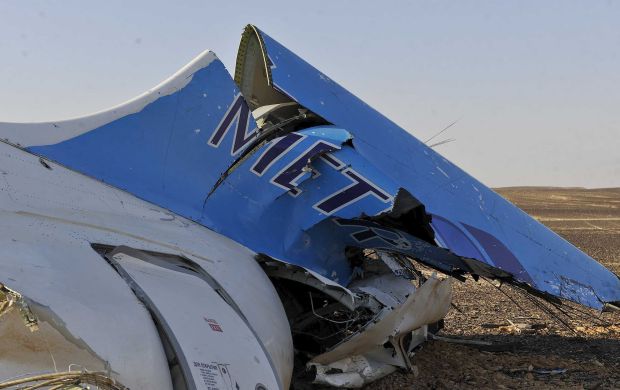U.S. satellite shows heat flash when Russian Metrojet plane crashed, but no missile

An American infrared satellite detected a heat flash at the same time and in the same vicinity over the Sinai where the Russian passenger plane crashed, a senior defense official told NBC News late Monday.
According to the official, U.S. intelligence analysts believe it could have been some kind of explosion on the aircraft itself, either a fuel tank or a bomb, but that there's no indication that a surface-to-air missile brought the plane down.
That same infrared satellite would have been able to track the heat trail of a missile from the ground.
"The speculation that this plane was brought down by a missile is off the table," the official said, NBC News said.
A second senior U.S. defense official also confirmed the surveillance satellite detected a "flash or explosion" in the air over the Sinai at the same time.
According to the official, "the plane disintegrated at a very high altitude," when, as the infrared satellite indicates, "there was an explosion of some kind."
That official also stressed "there is no evidence a missile of any kind brought down the plane."
The Metrojet-operated Airbus A321 crashed Saturday in Egypt's Sinai peninsula, killing all 224 on board. The local ISIS affiliate claimed responsibility for shooting it down — but officials dismissed that as impossible by saying the militants lacked the weapons to do so.
Политика конфиденциальности | Правила пользования сайтом







